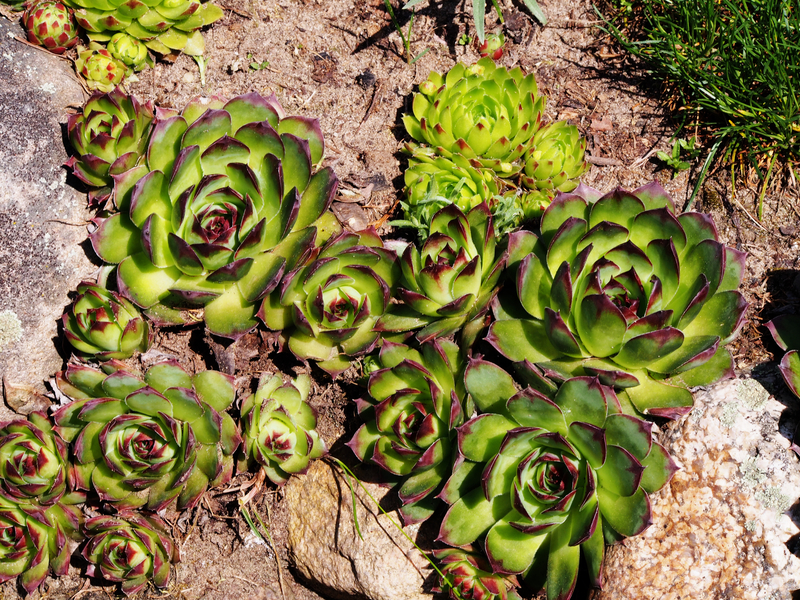Organic Waste to Enriched Soil
Posted on 05/11/2024
Transforming organic waste into enriched soil is not only an effective method of waste management but also enhances soil fertility, supports sustainable agriculture, and reduces environmental footprint. Whether you are a homeowner looking to improve your garden or a farmer aiming for sustainable farming practices, understanding the process, benefits, and challenges of converting organic waste to enriched soil is essential.
The Science Behind Composting
Composting is a natural process that turns organic material into a soil amendment, commonly known as compost. Microorganisms break down organic residues such as food scraps, grass clippings, and leaves. The byproduct is a nutrient-rich material that can be added to soil. Composting involves four essential components: carbon, nitrogen, moisture, and oxygen. An optimal balance of these elements encourages microbial activity, speeding up the decomposition process.

Different Methods of Composting
1. Traditional Composting: This involves creating compost piles or using bins where waste is added in layers, mixed periodically, and left to decompose naturally.
2. Vermicomposting: This uses worms, typically red wigglers, to break down organic waste faster, producing nutrient-dense worm castings.
3. Bokashi Composting: A fermentation process that uses a specific group of microorganisms to break down waste in an anaerobic environment.
4. Compost Tumblers: These are rotating bins that allow for easier aeration and mixing, accelerating the composting process.
Steps to Make Compost from Organic Waste
1. Collect Organic Waste: Gather kitchen scraps like vegetable peels, coffee grounds, and eggshells along with garden waste such as leaves, grass clippings, and small branches.
2. Create Layers: In your compost bin or pile, add waste in layers, alternating between green materials (nitrogen-rich) and brown materials (carbon-rich).
3. Maintain Moisture: Ensure the pile is as damp as a wrung-out sponge by adding water if it becomes too dry.
4. Aeration: Turn the compost pile regularly to introduce air, which helps in the decomposition process.
5. Monitor the Temperature: Ensure the pile remains warm. It indicates active microbial action.
Benefits of Using Compost
1. Improves Soil Structure: Compost enhances soil texture, making it easier to work with and improving its ability to retain water and nutrients.
2. Increases Beneficial Microbial Activity: Adding compost introduces beneficial microorganisms that aid in nutrient cycling and plant health.
3. Reduces Need for Chemical Fertilizers: Compost provides essential nutrients and organic matter, reducing the dependence on synthetic fertilizers.
4. Environmental Impact: Diverts waste from landfills, reducing methane emissions and promoting sustainable waste management.
Pros and Cons of Converting Organic Waste to Soil
Pros:
1. Environmentally Friendly: Reduces landfill waste and greenhouse gas emissions.
2. Cost-Effective: Lowers the need for chemical fertilizers and soil amendments.
3. Soil Health: Enhances soil fertility and structure, promoting plant growth.
Cons:
1. Time-Consuming: The decomposition process can take several months.
2. Space Requirements: Requires a dedicated space for composting bins or piles.
3. Potential Odor: Can emit unpleasant smells if not managed properly.

Tips for Effective Composting
1. Balance Green and Brown Materials: Ensure a proper mix of nitrogen-rich greens and carbon-rich browns.
2. Shred Large Pieces: Breaking down larger waste materials speeds up decomposition.
3. Regular Turning: Aerate the compost pile periodically to enhance microbial activity.
4. Monitor Moisture Levels: Keep the compost damp but not waterlogged.
5. Avoid Meat and Dairy: These can attract pests and cause your compost to smell.
Conclusion and Takeaways
Converting organic waste into enriched soil is an environmentally responsible practice that offers numerous benefits for gardeners, farmers, and the planet. By understanding the science behind composting, employing effective methods, and following practical tips, anyone can create nutrient-rich compost at home. Although it requires time, space, and some effort, the environmentally positive impact and the improved soil health make it worthwhile.
Takeaways:
- Composting reduces waste and enhances soil fertility.
- A balanced mix of green and brown materials is crucial.
- Regularly turning the pile and monitoring moisture are key to successful composting.
- While there are some challenges, the benefits far outweigh the cons, making it a valuable endeavor for sustainable living.
With dedication and proper techniques, transforming organic waste into enriched soil can become a gratifying practice that contributes significantly to a healthier environment and more productive gardens.
Latest Posts
Creating a Serene Zen Garden Oasis
Perfect Mow Timing: How Often to Trim Your Lawn?



